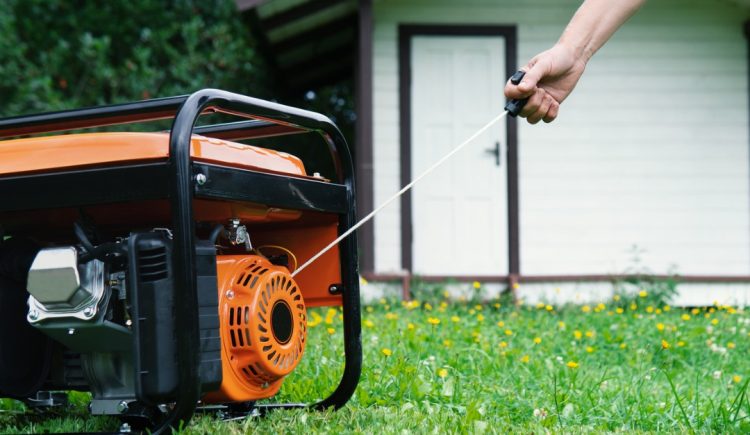A power outage can be an inconvenience, at best. If the electricity is out for days, you lose power during extremely hot or cold weather, or a member of your family requires a medical device that runs on electricity or takes medication that needs to be refrigerated, a power outage can be life threatening.
A generator can provide you with a backup source of energy until the utility company makes repairs. It can be expensive, but you might decide that the cost is worth it.
Types of Home Generators
A standby generator is permanently installed outdoors and can be fueled by natural gas, diesel, or propane. It stays in standby mode while the electricity is on. If the power goes out, the generator automatically kicks in to keep lights and appliances running.
A standby generator can take up a significant amount of space in the yard, and it must be far enough from the house to prevent carbon monoxide poisoning. Depending on the size and layout of your property, finding an appropriate space to put a generator might be challenging.
A portable generator provides less power than a standby whole-house generator. It can be used to provide power to part of a house or to vital appliances, such as the refrigerator, and some lights.
If you have a portable generator and you lose power, you’ll have to take the generator out of storage, hook it up a safe distance from your home, and cover it to protect it from rain and snow. Most portable generators are fueled by gasoline, but some use diesel, natural gas, or liquid propane. Fuel must be stored in a safe location. Some generators are noisy. Portable generators tend to produce more noise than standby models.
Cost of a Home Generator
Since a standby generator turns on automatically during a power outage, it’s more convenient than a portable generator. A standby model is also significantly more expensive. It can easily cost several thousand dollars, not including installation. No matter what type of generator you get, you’ll have to pay for fuel, change the oil and filter, and have a professional inspect it from time to time. Your maintenance schedule will depend on how often the generator is used.
Is a Home Generator Worth the Money?
If your area often loses electricity during storms, a generator can be a wise investment. A power outage that lasts for several days can make life unpleasant and put people’s lives at risk. If someone in your house has medical issues that require electricity, a home generator might be a necessity.
If you worry that you might lose power every time you find out that a storm is predicted, installing a home generator can give you peace of mind. Even if you only use it from time to time, knowing that you have it can help you rest easier. Weigh the cost against the potential benefits to figure out if getting a generator makes sense for you.











